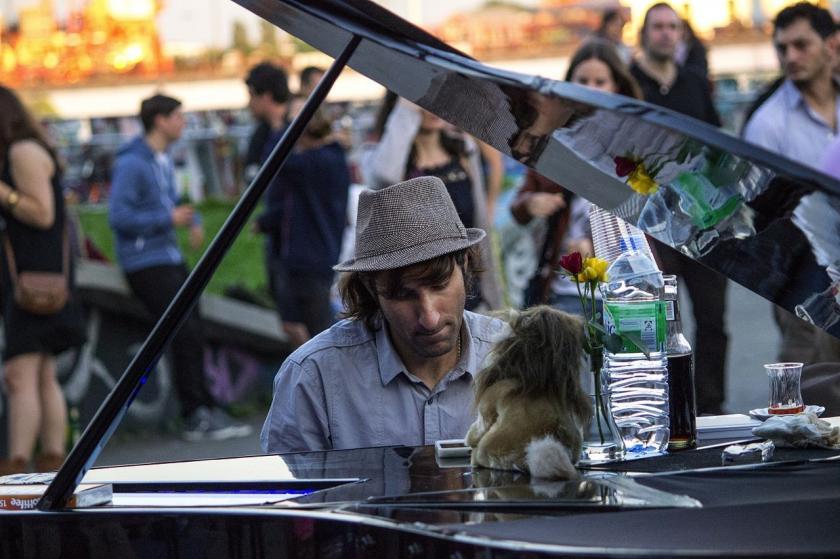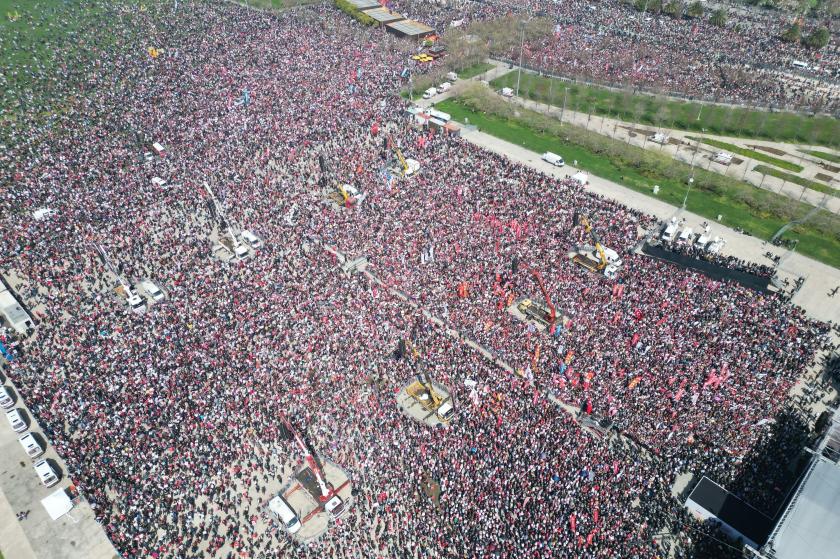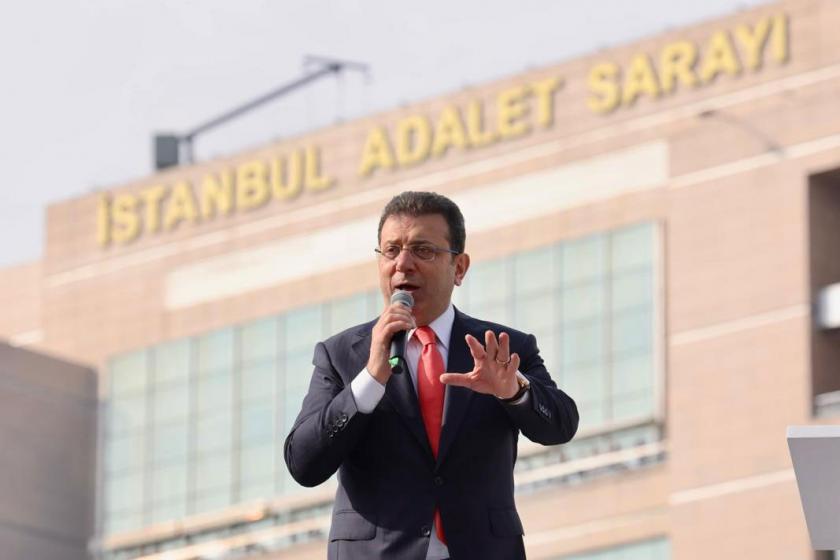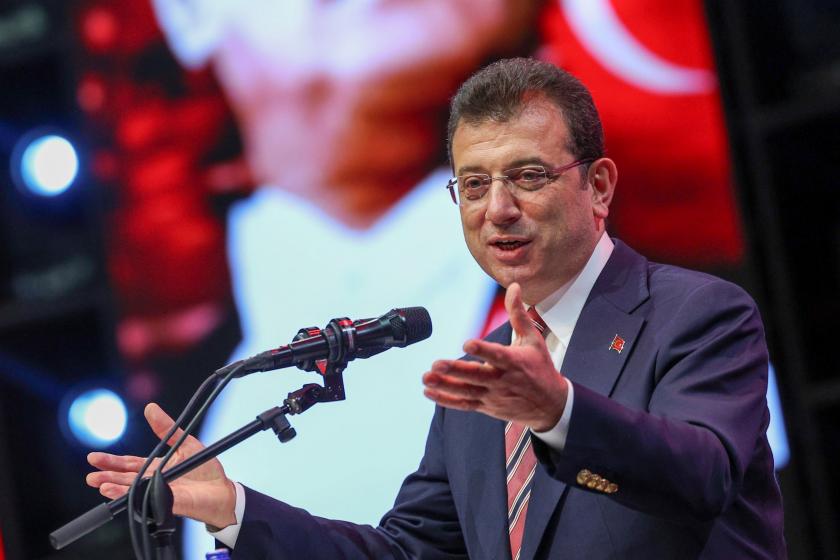Civil constitution or Erdoğan's crown!

Yusuf Karadaş

Fotoğraf: Murat Çetinmühürdar/TCCB
In his speech at the opening ceremony of the new legislative year of the Turkish Grand National Assembly, President Tayyip Erdoğan said that the biggest task in the new term is to "crown the Turkish century with a civil constitution".
The question is: Why does Erdoğan, who gathers all the powers in the administration of the country in his hands and can do anything he wants, insist so much on a new constitution?
Indeed, Erdoğan gives an order and the interior minister dismisses dozens of mayors elected by popular vote and replaces them with trustees.
Erdoğan receives the Chief Public Prosecutor of Ankara in his palace, and the chief prosecutor prepares an indictment (the Kobanê indictment) against more than a hundred politicians targeted by Erdoğan.
Erdoğan objects to the ECHR's rulings on Gezi prisoners, Osman Kavala and Selahattin Demirtaş; local courts, which see this objection as an instruction, do not implement the binding ECHR rulings.
Workers’ Party of Turkey (TİP) MP Can Atalay is not only being held in prison in violation of the Constitution, again on Erdoğan's orders, but the Supreme Court of Appeals is being quickly put into action to create a cover for this unlawfulness.
Journalists targeted by Erdoğan find themselves in prison and media outlets are being fined one after another.
Without holding anyone accountable, he can say what he said was 'wrong' yesterday was 'right' today in the economy and what he said was 'enemy' yesterday was 'friend' today in foreign policy.
Strike bans and raises for workers, public laborers and pensioners all depend on his two lips.
With decrees with the force of law, he can dismiss and appoint whomever he wants, give special incentives to capital, and open new areas to the plunder of mining and construction companies.
In short, today we are faced with a model of government in which legislative, judicial and executive powers are concentrated in the hands of a single person.
Despite this, Erdoğan again gives the answer to the question of why the one-man regime needs a new constitution.
"With the new constitution, we will have the opportunity to put an end to the debate on the system of governance forever," Erdoğan says.
There is no doubt that the one-man regime, which sees even the coup constitution as insufficient for its own needs and therefore suspends its own law and constitution, is trying to appear as anti-coup and exploit the people's expectation for a democratic constitution by emphasizing 'civilian'.
Erdoğan's explanation of the need for a new constitution as "ending the debate on the system of governance" reveals that he wants to constitutionalize everything he does today.
This desire is not incomprehensible because we are dealing with a regime that emerged de facto after the July 15 coup attempt and then gained a constitutional framework through the most shady referendum in the country's history. Although Erdoğan constitutionalized the one-man regime he de facto established after the July 15 coup attempt and the 2018 elections, he has had to de facto solve many of the problems he has faced since then, from the ECHR rulings to his disputes with the Constitutional Court and most recently his unconstitutional candidacy for a third term as president.
Erdoğan has so far used the elections, which were held under undemocratic conditions and whose results were highly questionable, as the main basis for his moves towards building a fascist regime. Now he is trying to turn his "victory" over the opposition in the last elections into an opportunity to make the constitution of this regime.
The fragmentation of the bourgeois opposition bloc after the electoral defeat, the blaming of the parties against each other, and the ongoing debates within these parties, especially the CHP, provide Erdoğan with a wide field of action to impose the constitution of the new regime. Especially the debates on the Kurdish question and secularism give Erdoğan room to maneuver in order to back up the nationalist and conservative opposition.
On the other hand, given the intensification of the struggle for sovereignty/share between imperialists in our region (Middle East, eastern Mediterranean, Black Sea and Caucasus), Turkey's special position in the refugee problem and the economic and political course of the world, it is necessary to mention that we are going through a process in which Erdoğan can make these moves without any serious objection from the world. Especially the bourgeois liberal circles, who are pinning their hopes on reactions from the US and the EU against Erdoğan's moves, fail to see these realities.
As a result, when Erdoğan talks about "crowning" Turkey with a new/civil constitution, he actually aims to constitutionalize the de facto steps he has taken towards building a fascist regime. In other words, he wants to crown his one-man regime with a new constitution, to make it permanent beyond de facto practices. Erdoğan's quest is in line with the goals of the most reactionary and aggressive sections of the monopoly bourgeoisie, who need more naked force to restrain the discontent of the working class and labourers and who want to grab a bigger share in the ongoing struggle for sharing among the imperialists.
This being the case, it is important to note that the statements made by the CHP and from time to time by the Green Left Party in the name of "constructive opposition" on the issue of the new constitution, such as "the sincerity of the government" or "we will look at what is in the package or not in the package", do not and cannot do anything other than creating space for Erdoğan to exploit the question of a democratic constitution. Because when even the most basic rights and freedoms are suspended, what needs to be done is not to participate in the regime's debate on a new constitution, but to unite the widest sections of society in the struggle for democratic rights and freedoms against this repressive regime.






Follow Evrensel